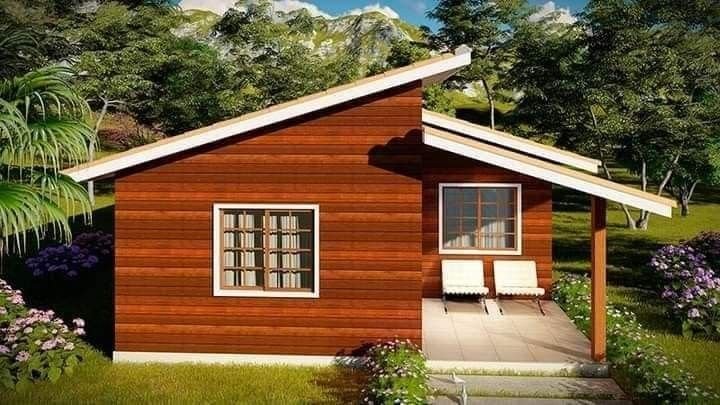by Ar. Sakshi Agiwal | Modular Pre-fabricated Homes, Wooden Homes | 26 July, 2025
Fed up with paying those sky-high electricity bills? Wondering if there’s a way, particularly beyond the generic power-saving tactics, to curtail the money you pay every month Then, you’ve come to the right place. But we’ve got a bigger and better solution. It has something to do with the caliber of the house that you are staying in. Yes! A house which gives not only shelter but saved money! Welcome to the world of pine homes, which in their mesmerizing beauty and rustic charm, also help you be more energy efficient and curb related costs significantly in the long run. Curious how it is possible? Now, we must be business like, at to-day.
9 Ways Pinewood Homes Cut Short Your Electricity Bills
From its inherent insulation properties to indirect advantages like durability, here are eight reasons you must consider embracing the pinewood home revolution.
Natural Insulation
Pinewood doesn’t let heat escape easily. Thanks to its low thermal conductivity. Hence, the home stays warm during the cold season and cool during the summer. When your home maintains a certain level of comfortable room temperature, you naturally come down on the use of HVAC systems. The result? An appreciable amount of energy is saved. Of course, these changes don’t reflect instantly. But with time you will see tangible ones.
Thermal Mass Efficiency
Pine is a lightweight wood type. However, it still offers some thermal mass. So, the walls soak and save the sun’s heat in the day and radiate it slowway at night, by regulating the indoor heating temperature. It helps maintain a comfortable temperature throughout the day, minimizing the need for constant heating or cooling with artificial temperature control.
Airtight Construction
Drafts and air leakages are among the major factors causing energy loss in traditional homes. However, pine houses address this challenge. Experienced manufactures of made of home pinewoods provide airtight construction in design. Airtight interlocking log systems are part of such kinds of homes which reduce drafts, and air leakages. So, less air escaping means less loss of energy on re-heating or re-cooling your space.
Thermal Envelope Around Your Home
Wondering what a thermal envelope is? In conventional stick-built homes, studs can create thermal bridges through which heat can easily escape. But thick walls made of pine assist in reducing the problem. They reduce the amount of thermal bridging, resulting in a more consistent and efficient thermal envelope around your home.
Eco-Friendly and Smartly Designed Homes
The design of your home is also a vital factor that contributes to its energy efficiency.
Pine homes tick this box too!
The most experienced and reputable pinewood home manufacturers align with sustainable building practices. Many of them build homes with passive design techniques like roof overhangs, south-facing windows, and cross-ventilation.
Now, apparently, you may not see these factors as smart moves. However, when done right, they can reduce your dependence on artificial heating, cooling, and lighting.
Therefore, the more you take the advantage of the power of nature, the more you save money!
No wonder, many people are choosing to live in a pinewood home.
Energy-Efficient Windows and Roofs
Pine homes usually use energy-efficient double or triple-pane windows and properly insulated roofing systems. The best manufacturers combine pine’s natural insulating properties with these elements, further amplifying your home’s energy efficiency and curtailing your electricity bill in the long run.
Minimal Maintenance
Maintenance involves the use of various machines and equipment that guzzle up a considerable amount of electricity. Frequent maintenance means using a substantial amount of electricity to run these devices and therefore fat power bills.
However, pine saves these efforts and also money by being easier to treat and maintain. Hence, repairs are less energy- and resource-intensive. Besides, fewer repairs mean fewer contractors and less energy consumption for the upkeep of your home.
Breathable Walls
Pine has a natural breathing ability that takes in and releases moisture, according to the climate both inside and outside the home. It helps maintain indoor air quality and temperature, minimizing the need for dehumidifiers or ACs.
Solar Energy System Compatibility
Pine homes are compatible with the robust setup you require to harness solar power. Pine houses have structural integrity, which offers to place rooftop panels with no effort attached to it. But on the other hand, the warm interior welcomes integration with smart thermostats and lighting control. So, you can surely go solar with a pinewood residence and have every reason to be proud of yourself for making a smart and sustainable move.
Become Smart and Budget Smart Living with the Pinewood Homes of Vrisa!
Why struggle with the challenges of rising electricity costs when you can overcome them? Partner with Vrisa Innovation and get a step closer to being energy-efficient with a pinewood home. Our homes integrate the latest technologies and intelligent architecture, helping you leverage the advantages of pinewood and save energy smartly. However, our homes go beyond just energy savings. They blend aesthetic appeal, safety, and factors like scalability to let you practically optimize the return on your investment.
Excited to see what our pinewood homes have in store for you? Email us at info@vrisainnovation.com Our experts will gladly connect with you.
